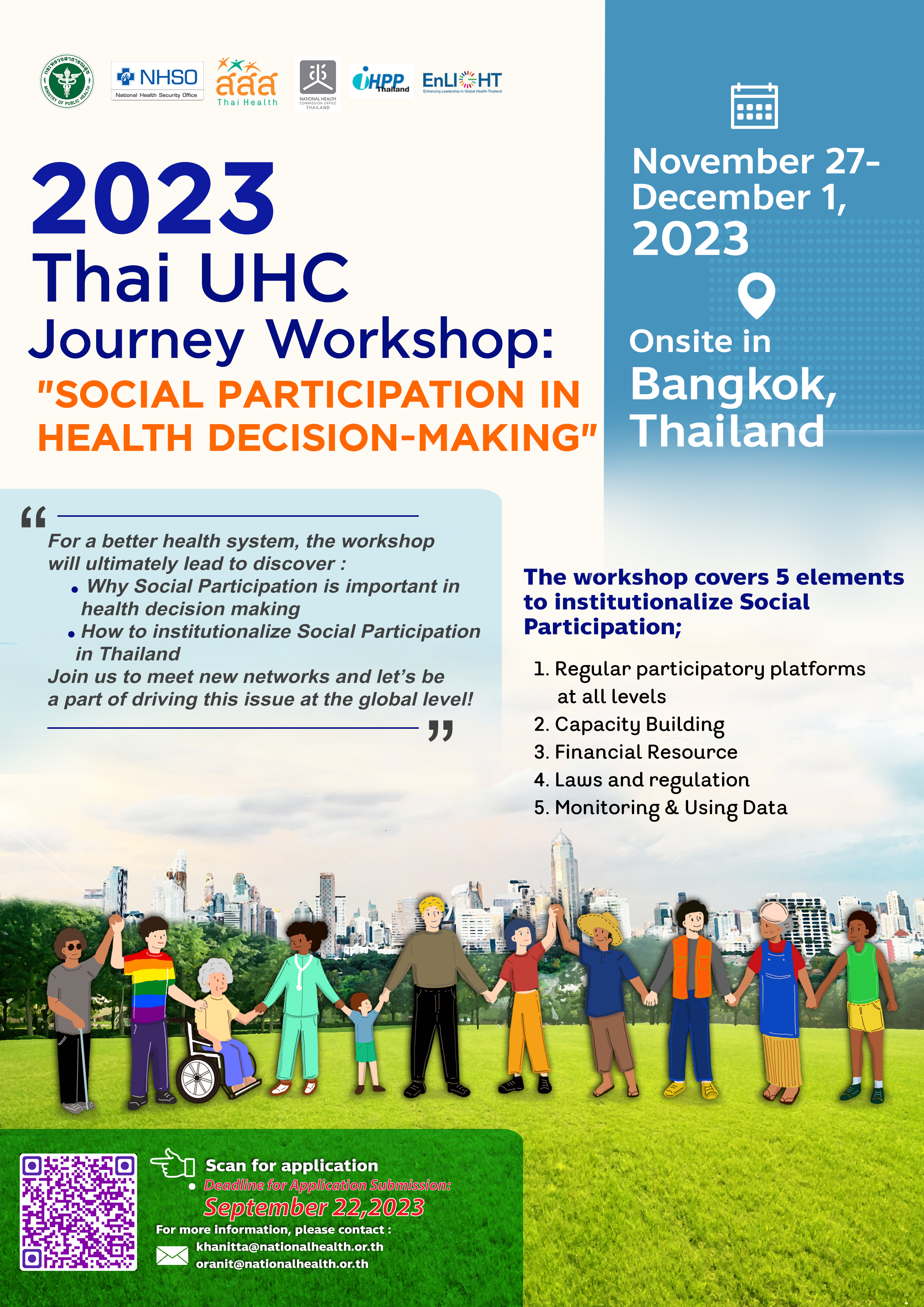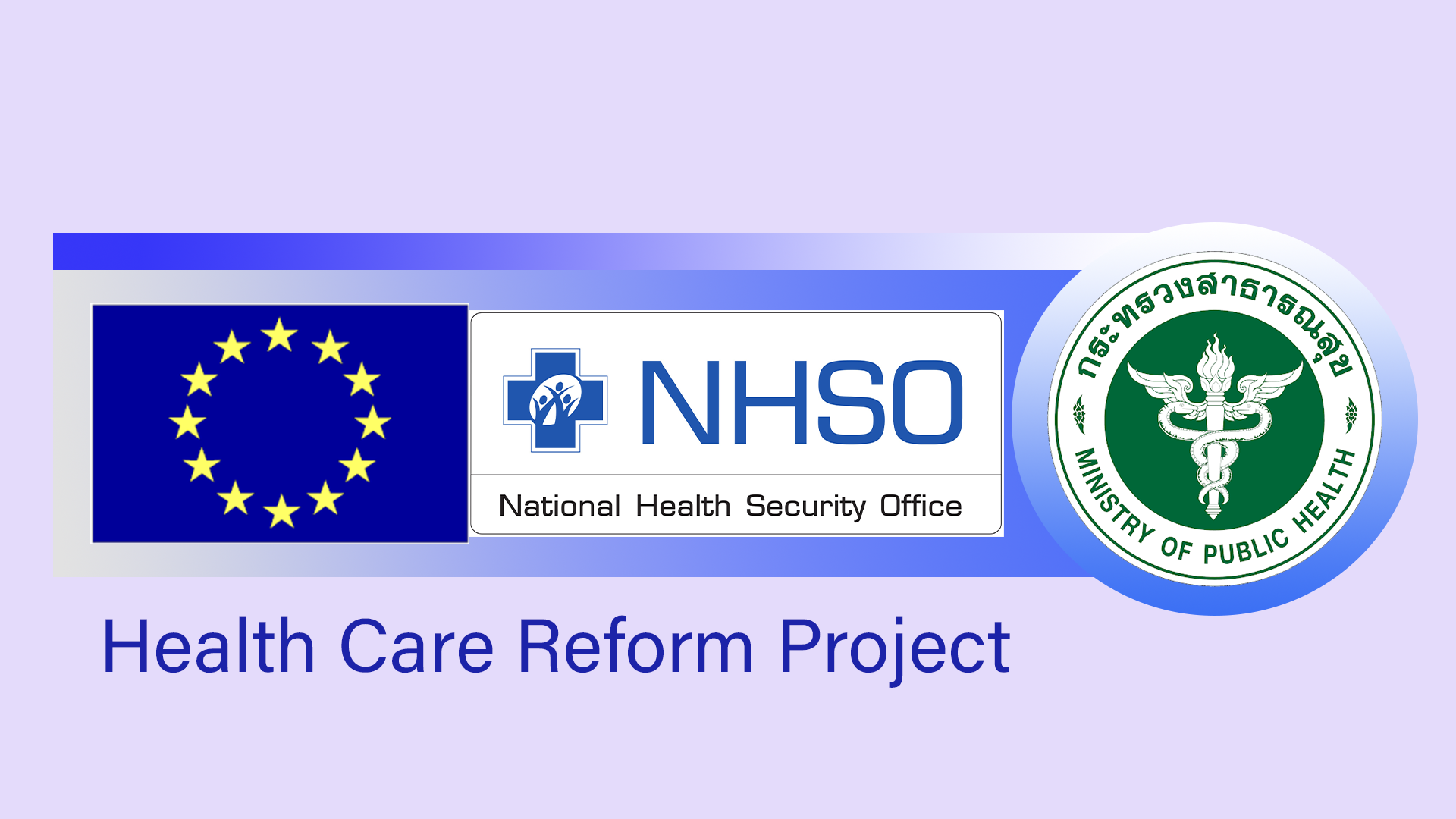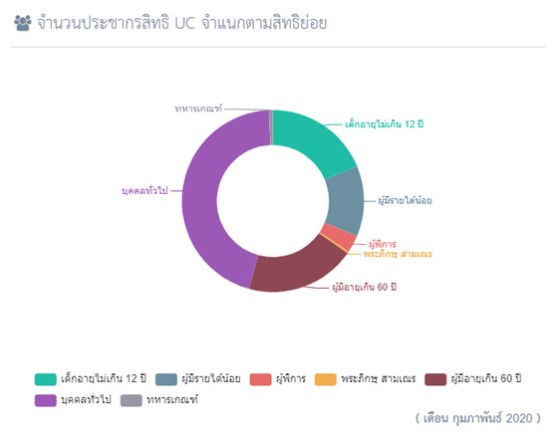Postal medicine delivery plays key role in telemedicine

Postal medicine delivery plays key role in telemedicine
Despite a decline in the popularity of postal medication delivery after the Covid-19 outbreak in Thailand has subsided, sending medicines by hospitals to their patients by post has become the new normal in the work of pharmacists at most, if not all hospitals.
And from being a solution adopted to lower the number of unnecessary visits to the hospital when the new coronavirus outbreak situation peaked in Thailand months ago, the postal drug delivery service has now become a mechanism to as much as possible reduce overcrowding at the outpatient ward of state-run hospitals.
The service also serves as an important element of telemedicine that has become the new normal in Thailand’s healthcare system as well.
Miruntee Chongchuaklong, a senior pharmacist with state-run Pakchongnana Hospital in Pak Chong district of Nakhon Ratchasima, still remembered vividly how hectic it was at the hospital’s pharmaceutical department months earlier.
A way of coping with hospital overcrowding
Just every day, a huge number of patients were waiting to pick up their medicines after seeing doctors, which made it hard for pharmacists to manage to explain to all patients about their medication to ensure they follow the instructions and take medicine safely and effectively.
By the time her department proposed for the hospital to switch partially to sending patients by post their regular medication for chronic diseases, the hospital was only beginning to implement the Rap Yai Klai Ban (Get your medicines near your home) project, she said.
And since the hospital’s system for dispensing medicines to its patients through local pharmacies under that project wasn’t really ready while the hospital had to bring down the number of hospital visitors for the sake of social distancing during the Covid-19 outbreak, postal delivery of medicines became an ideal solution, she said.
Patients interested in having their medicines sent to them at home by post were encouraged to sign up for the programme through the hospital’s social media including its Facebook page, she said.
Doctors’ approval and patients’ consent needed
Only patients whose doctors agree it is totally safe for them to continue taking the same medicines without having to come to the hospital to see doctors are allowed to take part in this postal drug dispensing programme, she said.
Photos of medicines along with instructions are printed out and included into medicine parcels sent the patients, to check if they receive correct items of medication and follow the instructions given, she said.
Pharmacists normally call these patients one by one both before they send medicines to them and after the patients have received their medicine parcels to ensure their medicines surely reach them, she said.
In case these patients later need help or have a question about their medication, they can instead visit either a health promotion hospital in their communities or a pharmacy near them that is taking part in the hospital’s drug dispensing pharmacy programme, she said.
The hospital communicates instantly with these community hospitals and pharmacies via Line, a popular social media application, she said.
Health promotion hospitals, pharmacies involved
These community hospitals and pharmacies also help the hospital with measuring these patients’ vital signs and giving them blood sugar tests when necessary, which are extra services highly appreciated by the patients, she said.
A number of these patients now visit their doctors in person at the hospital only once in a while as they continue receiving their medicine by post, she said.
Certain types of patients such as ones with mental condition are being advised to regularly undergo an assessment of their symptoms at a health promotion hospital near them, to decide whether they should continue taking the same medicines or change them.
In case of changing medication, the patients will later be appointed to see their psychiatrists through a telemedicine programme at the same community hospital, in which their doctors will see them from the hospital, she said.
As of Sept 9, 2020, a total of 209 hospitals under the universal coverage (UCS) scheme and 128,141 patients were taking part in this postal medicine delivery programme, according to the National Health Security Office (NHSO).

Delivery costs will come down
The NHSO now pays Thailand Post 50 baht per medication parcel handling and expects to bring the cost of the postal medicine delivery down to 30 baht per time next year when more than 400 hospitals are expected to join the programme.
Thailand Post guarantees that every medication parcel reaches its recipient in no more than three days no matter where he or she lives, said Dr Sakchai Kanjanawatana, Secretary-General of the NHSO.
Aside from being an ideal option for delivering medicines to patients in the event of a second wave of the Covid-19 outbreak, postal medication delivery is also considered a key element in telemedicine and telehealth, which are the future of the country’s healthcare system, said Public Health Minister Anutin Charnvirakul.
Thailandpost Distribution Co, a subsidiary of Thailand Post, is now piloting a new service of delivering medication in temperature-controlled cars in Bangkok and the surrounding provinces, which is expected to be expanded to cover more provinces from next year, said Thailand Post chief executive Korkij Danchaivichit.
IN DEPTH
Postal medicine delivery plays key role in telemedicine

Postal medicine delivery plays key role in telemedicine
Despite a decline in the popularity of postal medication delivery after the Covid-19 outbreak in Thailand has subsided, sending medicines by hospitals to their patients by post has become the new normal in the work of pharmacists at most, if not all hospitals.
And from being a solution adopted to lower the number of unnecessary visits to the hospital when the new coronavirus outbreak situation peaked in Thailand months ago, the postal drug delivery service has now become a mechanism to as much as possible reduce overcrowding at the outpatient ward of state-run hospitals.
The service also serves as an important element of telemedicine that has become the new normal in Thailand’s healthcare system as well.
Miruntee Chongchuaklong, a senior pharmacist with state-run Pakchongnana Hospital in Pak Chong district of Nakhon Ratchasima, still remembered vividly how hectic it was at the hospital’s pharmaceutical department months earlier.
A way of coping with hospital overcrowding
Just every day, a huge number of patients were waiting to pick up their medicines after seeing doctors, which made it hard for pharmacists to manage to explain to all patients about their medication to ensure they follow the instructions and take medicine safely and effectively.
By the time her department proposed for the hospital to switch partially to sending patients by post their regular medication for chronic diseases, the hospital was only beginning to implement the Rap Yai Klai Ban (Get your medicines near your home) project, she said.
And since the hospital’s system for dispensing medicines to its patients through local pharmacies under that project wasn’t really ready while the hospital had to bring down the number of hospital visitors for the sake of social distancing during the Covid-19 outbreak, postal delivery of medicines became an ideal solution, she said.
Patients interested in having their medicines sent to them at home by post were encouraged to sign up for the programme through the hospital’s social media including its Facebook page, she said.
Doctors’ approval and patients’ consent needed
Only patients whose doctors agree it is totally safe for them to continue taking the same medicines without having to come to the hospital to see doctors are allowed to take part in this postal drug dispensing programme, she said.
Photos of medicines along with instructions are printed out and included into medicine parcels sent the patients, to check if they receive correct items of medication and follow the instructions given, she said.
Pharmacists normally call these patients one by one both before they send medicines to them and after the patients have received their medicine parcels to ensure their medicines surely reach them, she said.
In case these patients later need help or have a question about their medication, they can instead visit either a health promotion hospital in their communities or a pharmacy near them that is taking part in the hospital’s drug dispensing pharmacy programme, she said.
The hospital communicates instantly with these community hospitals and pharmacies via Line, a popular social media application, she said.
Health promotion hospitals, pharmacies involved
These community hospitals and pharmacies also help the hospital with measuring these patients’ vital signs and giving them blood sugar tests when necessary, which are extra services highly appreciated by the patients, she said.
A number of these patients now visit their doctors in person at the hospital only once in a while as they continue receiving their medicine by post, she said.
Certain types of patients such as ones with mental condition are being advised to regularly undergo an assessment of their symptoms at a health promotion hospital near them, to decide whether they should continue taking the same medicines or change them.
In case of changing medication, the patients will later be appointed to see their psychiatrists through a telemedicine programme at the same community hospital, in which their doctors will see them from the hospital, she said.
As of Sept 9, 2020, a total of 209 hospitals under the universal coverage (UCS) scheme and 128,141 patients were taking part in this postal medicine delivery programme, according to the National Health Security Office (NHSO).

Delivery costs will come down
The NHSO now pays Thailand Post 50 baht per medication parcel handling and expects to bring the cost of the postal medicine delivery down to 30 baht per time next year when more than 400 hospitals are expected to join the programme.
Thailand Post guarantees that every medication parcel reaches its recipient in no more than three days no matter where he or she lives, said Dr Sakchai Kanjanawatana, Secretary-General of the NHSO.
Aside from being an ideal option for delivering medicines to patients in the event of a second wave of the Covid-19 outbreak, postal medication delivery is also considered a key element in telemedicine and telehealth, which are the future of the country’s healthcare system, said Public Health Minister Anutin Charnvirakul.
Thailandpost Distribution Co, a subsidiary of Thailand Post, is now piloting a new service of delivering medication in temperature-controlled cars in Bangkok and the surrounding provinces, which is expected to be expanded to cover more provinces from next year, said Thailand Post chief executive Korkij Danchaivichit.
Events
Postal medicine delivery plays key role in telemedicine

Postal medicine delivery plays key role in telemedicine
Despite a decline in the popularity of postal medication delivery after the Covid-19 outbreak in Thailand has subsided, sending medicines by hospitals to their patients by post has become the new normal in the work of pharmacists at most, if not all hospitals.
And from being a solution adopted to lower the number of unnecessary visits to the hospital when the new coronavirus outbreak situation peaked in Thailand months ago, the postal drug delivery service has now become a mechanism to as much as possible reduce overcrowding at the outpatient ward of state-run hospitals.
The service also serves as an important element of telemedicine that has become the new normal in Thailand’s healthcare system as well.
Miruntee Chongchuaklong, a senior pharmacist with state-run Pakchongnana Hospital in Pak Chong district of Nakhon Ratchasima, still remembered vividly how hectic it was at the hospital’s pharmaceutical department months earlier.
A way of coping with hospital overcrowding
Just every day, a huge number of patients were waiting to pick up their medicines after seeing doctors, which made it hard for pharmacists to manage to explain to all patients about their medication to ensure they follow the instructions and take medicine safely and effectively.
By the time her department proposed for the hospital to switch partially to sending patients by post their regular medication for chronic diseases, the hospital was only beginning to implement the Rap Yai Klai Ban (Get your medicines near your home) project, she said.
And since the hospital’s system for dispensing medicines to its patients through local pharmacies under that project wasn’t really ready while the hospital had to bring down the number of hospital visitors for the sake of social distancing during the Covid-19 outbreak, postal delivery of medicines became an ideal solution, she said.
Patients interested in having their medicines sent to them at home by post were encouraged to sign up for the programme through the hospital’s social media including its Facebook page, she said.
Doctors’ approval and patients’ consent needed
Only patients whose doctors agree it is totally safe for them to continue taking the same medicines without having to come to the hospital to see doctors are allowed to take part in this postal drug dispensing programme, she said.
Photos of medicines along with instructions are printed out and included into medicine parcels sent the patients, to check if they receive correct items of medication and follow the instructions given, she said.
Pharmacists normally call these patients one by one both before they send medicines to them and after the patients have received their medicine parcels to ensure their medicines surely reach them, she said.
In case these patients later need help or have a question about their medication, they can instead visit either a health promotion hospital in their communities or a pharmacy near them that is taking part in the hospital’s drug dispensing pharmacy programme, she said.
The hospital communicates instantly with these community hospitals and pharmacies via Line, a popular social media application, she said.
Health promotion hospitals, pharmacies involved
These community hospitals and pharmacies also help the hospital with measuring these patients’ vital signs and giving them blood sugar tests when necessary, which are extra services highly appreciated by the patients, she said.
A number of these patients now visit their doctors in person at the hospital only once in a while as they continue receiving their medicine by post, she said.
Certain types of patients such as ones with mental condition are being advised to regularly undergo an assessment of their symptoms at a health promotion hospital near them, to decide whether they should continue taking the same medicines or change them.
In case of changing medication, the patients will later be appointed to see their psychiatrists through a telemedicine programme at the same community hospital, in which their doctors will see them from the hospital, she said.
As of Sept 9, 2020, a total of 209 hospitals under the universal coverage (UCS) scheme and 128,141 patients were taking part in this postal medicine delivery programme, according to the National Health Security Office (NHSO).

Delivery costs will come down
The NHSO now pays Thailand Post 50 baht per medication parcel handling and expects to bring the cost of the postal medicine delivery down to 30 baht per time next year when more than 400 hospitals are expected to join the programme.
Thailand Post guarantees that every medication parcel reaches its recipient in no more than three days no matter where he or she lives, said Dr Sakchai Kanjanawatana, Secretary-General of the NHSO.
Aside from being an ideal option for delivering medicines to patients in the event of a second wave of the Covid-19 outbreak, postal medication delivery is also considered a key element in telemedicine and telehealth, which are the future of the country’s healthcare system, said Public Health Minister Anutin Charnvirakul.
Thailandpost Distribution Co, a subsidiary of Thailand Post, is now piloting a new service of delivering medication in temperature-controlled cars in Bangkok and the surrounding provinces, which is expected to be expanded to cover more provinces from next year, said Thailand Post chief executive Korkij Danchaivichit.
RESOURCE CENTER
SECRETARY-GENERAL
Postal medicine delivery plays key role in telemedicine

Postal medicine delivery plays key role in telemedicine
Despite a decline in the popularity of postal medication delivery after the Covid-19 outbreak in Thailand has subsided, sending medicines by hospitals to their patients by post has become the new normal in the work of pharmacists at most, if not all hospitals.
And from being a solution adopted to lower the number of unnecessary visits to the hospital when the new coronavirus outbreak situation peaked in Thailand months ago, the postal drug delivery service has now become a mechanism to as much as possible reduce overcrowding at the outpatient ward of state-run hospitals.
The service also serves as an important element of telemedicine that has become the new normal in Thailand’s healthcare system as well.
Miruntee Chongchuaklong, a senior pharmacist with state-run Pakchongnana Hospital in Pak Chong district of Nakhon Ratchasima, still remembered vividly how hectic it was at the hospital’s pharmaceutical department months earlier.
A way of coping with hospital overcrowding
Just every day, a huge number of patients were waiting to pick up their medicines after seeing doctors, which made it hard for pharmacists to manage to explain to all patients about their medication to ensure they follow the instructions and take medicine safely and effectively.
By the time her department proposed for the hospital to switch partially to sending patients by post their regular medication for chronic diseases, the hospital was only beginning to implement the Rap Yai Klai Ban (Get your medicines near your home) project, she said.
And since the hospital’s system for dispensing medicines to its patients through local pharmacies under that project wasn’t really ready while the hospital had to bring down the number of hospital visitors for the sake of social distancing during the Covid-19 outbreak, postal delivery of medicines became an ideal solution, she said.
Patients interested in having their medicines sent to them at home by post were encouraged to sign up for the programme through the hospital’s social media including its Facebook page, she said.
Doctors’ approval and patients’ consent needed
Only patients whose doctors agree it is totally safe for them to continue taking the same medicines without having to come to the hospital to see doctors are allowed to take part in this postal drug dispensing programme, she said.
Photos of medicines along with instructions are printed out and included into medicine parcels sent the patients, to check if they receive correct items of medication and follow the instructions given, she said.
Pharmacists normally call these patients one by one both before they send medicines to them and after the patients have received their medicine parcels to ensure their medicines surely reach them, she said.
In case these patients later need help or have a question about their medication, they can instead visit either a health promotion hospital in their communities or a pharmacy near them that is taking part in the hospital’s drug dispensing pharmacy programme, she said.
The hospital communicates instantly with these community hospitals and pharmacies via Line, a popular social media application, she said.
Health promotion hospitals, pharmacies involved
These community hospitals and pharmacies also help the hospital with measuring these patients’ vital signs and giving them blood sugar tests when necessary, which are extra services highly appreciated by the patients, she said.
A number of these patients now visit their doctors in person at the hospital only once in a while as they continue receiving their medicine by post, she said.
Certain types of patients such as ones with mental condition are being advised to regularly undergo an assessment of their symptoms at a health promotion hospital near them, to decide whether they should continue taking the same medicines or change them.
In case of changing medication, the patients will later be appointed to see their psychiatrists through a telemedicine programme at the same community hospital, in which their doctors will see them from the hospital, she said.
As of Sept 9, 2020, a total of 209 hospitals under the universal coverage (UCS) scheme and 128,141 patients were taking part in this postal medicine delivery programme, according to the National Health Security Office (NHSO).

Delivery costs will come down
The NHSO now pays Thailand Post 50 baht per medication parcel handling and expects to bring the cost of the postal medicine delivery down to 30 baht per time next year when more than 400 hospitals are expected to join the programme.
Thailand Post guarantees that every medication parcel reaches its recipient in no more than three days no matter where he or she lives, said Dr Sakchai Kanjanawatana, Secretary-General of the NHSO.
Aside from being an ideal option for delivering medicines to patients in the event of a second wave of the Covid-19 outbreak, postal medication delivery is also considered a key element in telemedicine and telehealth, which are the future of the country’s healthcare system, said Public Health Minister Anutin Charnvirakul.
Thailandpost Distribution Co, a subsidiary of Thailand Post, is now piloting a new service of delivering medication in temperature-controlled cars in Bangkok and the surrounding provinces, which is expected to be expanded to cover more provinces from next year, said Thailand Post chief executive Korkij Danchaivichit.
VIDEOS
Thailand's UHC Journey
UHC Public relations












